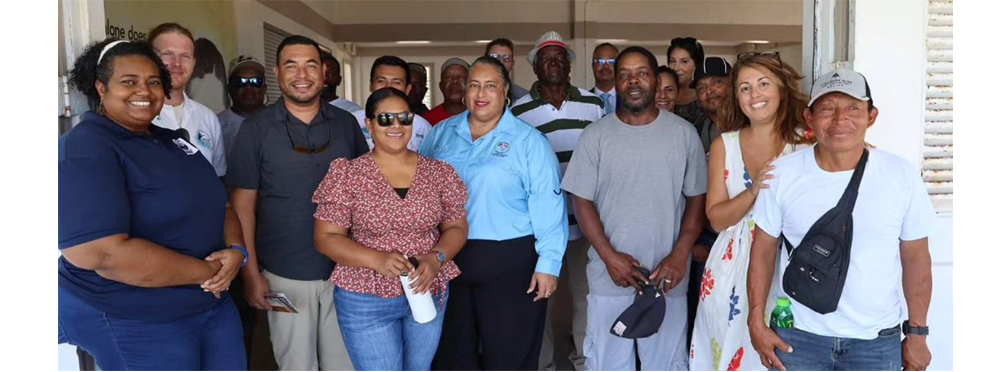Photo: Fisherfolk and Organizations to partake in the Artisanal Fishing Loan Pilot Program
by Kristen Ku
BELIZE CITY, Mon. Feb. 12, 2024
The Government of Belize, in collaboration with the World Wildlife Fund (WWF), the Development Finance Corporation of Belize (DFC), and the Wildlife Conservation Society (WCS), launched the Artisanal Fishing Loan Pilot Program on Monday, February 12.
This initiative, revealed at the Government House Grounds in Belize City, is catered to fishers in Glover’s Reef Marine Reserve with the goal of spreading nationally under the Resilient Bold Belize (RBB) initiative in 2025.
“The Fisheries Sector is one of the key economic drivers within Belize’s Blue Economy, and it is essential that we have facilities like this fisher loan program to provide the much-needed access to finances to improve fisherfolk livelihood activities and their continued collective contribution to our national economy, while at the same time promoting the sustainable use of Belize’s fisheries resources,” shared Beverly Wade, Director Blue Bond and Finance Permanence Unit, Office of the Prime Minister.
Designed to provide financial solutions to small-scale artisanal fishers, the pilot program offers a range of loan products, including capital loans for purchasing boats and engines, maintenance loans for equipment, and working capital to kick-start the fishing season. Importantly, the program also prioritizes financial inclusion, offering lower interest rates, varying from 8.5% to 12%, especially for women and young fishers to encourage their participation in the sector.
The DFC’s strategy involves using the purchased equipment as security, or employing promissory notes for smaller loans, making the program broadly accessible to Belize’s fishing community.
“We will make available the program to any fisher, but we’re piloting it. DFC is Belize’s development finance institution. We’re not trying to, let’s say, compete with the commercial bank, so these are the things we do. This is an opportunity to improve the livelihood of the fisher folk, but at the same time ensure that they are protecting where they fish, and that allows for business to continue for a long time,” shared Henry Anderson, the CEO of DFC.
Fisherfolk such as Clyde Martinez, coordinator for the Hopkins Fisherman Cooperative, embraced the program and viewed it as a great opportunity. Despite fishers being initially cautious of the interest rates, they are similarly beginning to see the benefits of the loan program over traditional banking systems and grants.
“We had thought that getting a grant would have been better, and that’s what most persons would like to do. But getting a grant, not everybody will be able to get it,” he noted.
“If you have ten of us that want a grant, maybe three or five might be the person that gets it. And when that grant comes, it’s like, it’s gone. That person gets it, and nobody else will be able to get anything else, unless you find another grant where you are able to take care of the other persons. But with this loan, it becomes a revolving fund. You who get now can always come back if you want more,” Martinez said.
According to the DFC, the pilot program promises “to ensure compliance with fisheries laws and regulations in Belize for long-term sustainable fisheries.”

